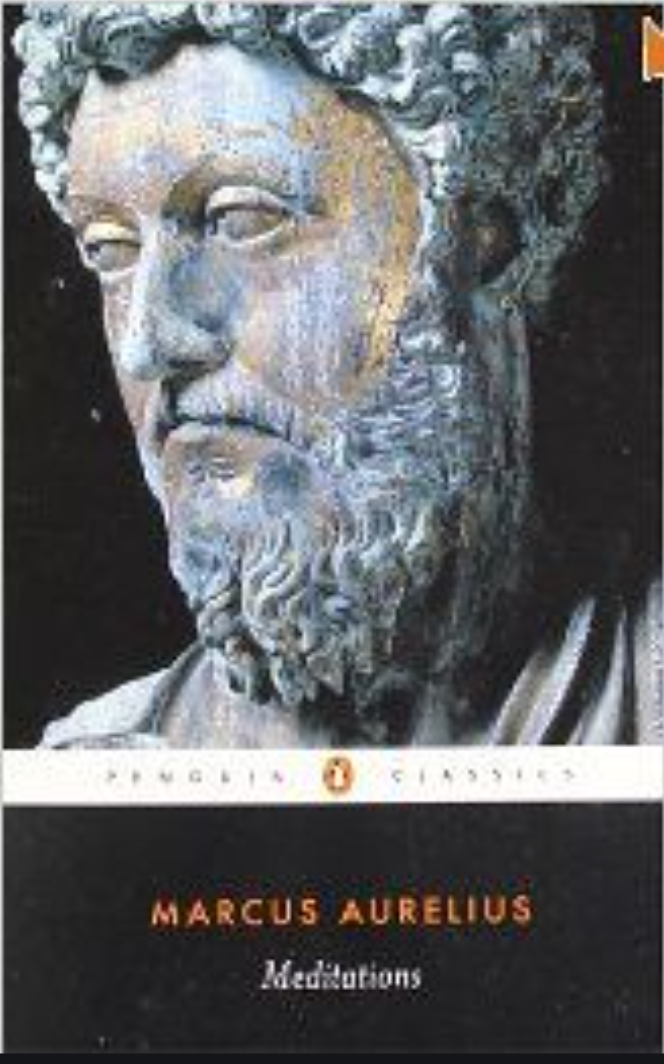To be free of passion and yet full of love. 1.9
And that when people incurred his disapproval, they always knew it. And that his friends never had to speculate about his attitude to anything: it was always clear. 1.14
The way he handled the material comforts that fortune had supplied him in such abundance—without arrogance and without apology. If they were there, he took advantage of them. If not, he didn’t miss them. 1.16
This, in particular: his willingness to yield the floor to experts—in oratory, law, psychology, whatever—and to support them energetically, so that each of them could fulfill his potential. 1.16
Even chance is not divorced from nature, from the inweaving and enfolding of things governed by Providence. Everything proceeds from it. And then there is necessity and the needs of the whole world, of which you are a part. Whatever the nature of the whole does, and whatever serves to maintain it, is good for every part of nature. The world is maintained by change—in the elements and in the things they compose. 2.3
Remember how long you’ve been putting this off, how many extensions the gods gave you, and you didn’t use them. At some point you have to recognize what world it is that you belong to; what power rules it and from what source you spring; that there is a limit to the time assigned you, and if you don’t use it to free yourself it will be gone and will never return. 2.4 #time
Do external things distract you? Then make time for yourself to learn something worthwhile; stop letting yourself be pulled in all directions. But make sure you guard against the other kind of confusion. People who labor all their lives but have no purpose to direct every thought and impulse toward are wasting their time—even when hard at work. (2.7)
Don’t ever forget these things:
The nature of the world.
My nature.
How I relate to the world.
What proportion of it I make up.
That you are part of nature, and no one can prevent you from speaking and acting in harmony with it, always. 2.9
In comparing sins (the way people do) Theophrastus says that the ones committed out of desire are worse than the ones committed out of anger: which is good philosophy. The angry man seems to turn his back on reason out of a kind of pain and inner convulsion. But the man motivated by desire, who is mastered by pleasure, seems somehow more self-indulgent, less manly in his sins. Theophrastus is right, and philosophically sound, to say that the sin committed out of pleasure deserves a harsher rebuke than the one committed out of pain. The angry man is more like a victim of wrongdoing, provoked by pain to anger. The other man rushes into wrongdoing on his own, moved to action by desire. 2.10
But death and life, success and failure, pain and pleasure, wealth and poverty, all these happen to good and bad alike, and they are neither noble nor shameful—and hence neither good nor bad. 2.11 #dichotomy
The speed with which all of them vanish—the objects in the world, and the memory of them in time. 2.12
Remember two things:
i. that everything has always been the same, and keeps recurring, and it makes no difference whether you see the same things recur in a hundred years or two hundred, or in an infinite period;
ii. that the longest-lived and those who will die soonest lose the same thing. The present is all that they can give up, since that is all you have, and what you do not have, you cannot lose. 2.14
The human soul degrades itself:
i. Above all, when it does its best to become an abscess, a kind of detached growth on the world. To be disgruntled at anything that happens is a kind of secession from Nature, which comprises the nature of all things. 2.16
2.17: Human life.
Duration: momentary. Nature: changeable. Perception: dim. Condition of Body: decaying. Soul: spinning around. Fortune: unpredictable. Lasting Fame: uncertain. Sum Up: The body and its parts are a river, the soul a dream and mist, life is warfare and a journey far from home, lasting reputation is oblivion.
Then what can guide us?
Only philosophy.
Which means making sure that the power within stays safe and free from assault, superior to pleasure and pain, doing nothing randomly or dishonestly and with imposture, not dependent on anyone else’s doing something or not doing it. And making sure that it accepts what happens and what it is dealt as coming from the same place it came from. And above all, that it accepts death in a cheerful spirit, as nothing but the dissolution of the elements from which each living thing is composed. If it doesn’t hurt the individual elements to change continually into one another, why are people afraid of all of them changing and separating? It’s a natural thing. And nothing natural is evil.
When jarred, unavoidably, by circumstances, revert at once to yourself, and don’t lose the rhythm more than you can help. You’ll have a better grasp of the harmony if you keep on going back to it. (6.11)
Like seeing roasted meat and other dishes in front of you and suddenly realizing: This is a dead fish. A dead bird. A dead pig. Or that this noble vintage is grape juice, and the purple robes are sheep wool dyed with shellfish blood. Or making love—something rubbing against your penis, a brief seizure and a little cloudy liquid.
Perceptions like that—latching onto things and piercing through them, so we see what they really are. That’s what we need to do all the time—all through our lives when things lay claim to our trust—to lay them bare and see how pointless they are, to strip away the legend that encrusts them.
Pride is a master of deception: when you think you’re occupied in the weightiest business, that’s when he has you in his spell. (6.13) #serious
Some things are rushing into existence, others out of it.
Some of what now exists is already gone. Change and flux
constantly remake the world, just as the incessant
progression of time remakes eternity.
We find ourselves in a river. Which of the things around us
should we value when none of them can offer a firm
foothold?
Like an attachment to a sparrow: we glimpse it and it’s
gone. (6.15) #ephemerality
Awaken; return to yourself. Now, no longer asleep, knowing they were only dreams, clear-headed again, treat everything around you as a dream. (6.31)

